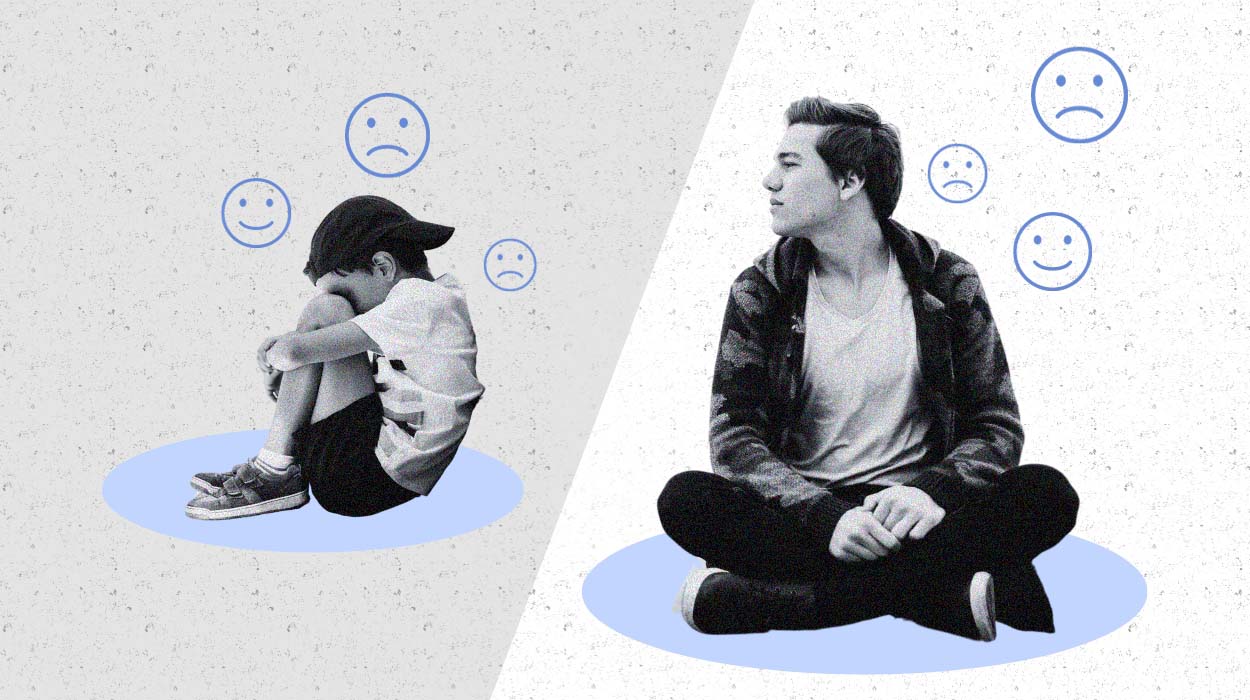 Expert's opinion
Expert's opinion
Expert's opinion
The article is a subjective view on this topic written by writers specializing in medical writing.
It may reflect on a personal journey surrounding struggles with an illness or medical condition, involve product comparisons, diet considerations, or other health-related opinions.
Although the view is entirely that of the writer, it is based on academic experiences and scientific research they have conducted; it is fact-checked by a team of degreed medical experts, and validated by sources attached to the article.
The numbers in parenthesis (1,2,3) will take you to clickable links to related scientific papers.
How To Heal From Trauma: What Is It & Common Types 2024

Experiencing trauma can be an overwhelming and life-altering event. It is essential for individuals who have dealt with traumatic experiences to understand how to heal from trauma and move forward.
This article will explore what trauma is, common types of trauma, common reactions to trauma, including symptoms of depression and anxiety, and the necessary steps to heal from trauma. By gaining a deeper understanding of the subject, you can begin to regain control of your life and navigate the path to recovery.
How Do You Heal From Trauma?
Everyone experiences trauma differently; what may be traumatic for one person may not necessarily be so for another. Regardless of the type of trauma you’ve experienced, there are strategies out there to help you heal from traumatic experiences and live a happy, fulfilled life:
- Therapy And Support
- Self-Care Strategies
- Managing Triggers And Emotions
- Building Resilience And Coping Skills
- Addressing Mental Health Challenges
- Healing And Recovery Process
- Understanding Defense Mechanisms
- Signs Your Body Is Releasing Trauma
How To Heal From Trauma
This section will detail how to heal from all types of trauma, including relationship trauma, childhood trauma, sexual trauma, emotional trauma, past trauma, and trauma bonding.
Therapy And Support
Seeking help from a trauma-informed therapist is important in the healing process. They can provide guidance, resources, and coping mechanisms tailored to your trauma.
Models of trauma therapy[1] frequently divide healing into steps or stages. The first step is usually the establishment of a sense of safety. Next, a secure alliance with a trusted mental health professional is formed. Then, being able to confront the traumas and trust in others while telling their story, they experience a comforting release into the final stages of recovery, where they feel more in control and transcend wishes for revenge.
Joining a support group can also be helpful, as it provides a safe space to share experiences and learn from others undergoing trauma-informed care.
Self-Care Strategies
Caring for your physical, emotional, and spiritual well-being is essential during healing. To maintain balance in your life, consider implementing self-care habits such as:
- Regular exercise to improve mood and overall health.
- Practicing yoga, meditation, or other relaxation techniques.
- Developing a consistent sleep schedule and getting sufficient restful sleep.
- Eating a healthy, balanced diet with the necessary nutrients.
- Engaging in creative hobbies like journaling, painting, or music.
Managing Triggers And Emotions
Knowing your triggers and managing your emotions can help you cope with trauma. You can start by incorporating mindfulness and other relaxation techniques into your life. Then develop a plan to manage your anxiety and coping strategies when faced with triggers.
Building Resilience And Coping Skills
Working on resilience can aid in recovery from trauma. Some approaches to improve resilience include:
- Establishing a solid support system.
- Setting achievable goals for personal growth.
- Tackling challenges with a problem-solving mindset.
- Focusing on aspects of your life that you can control.
Addressing Mental Health Challenges
Trauma survivors often face additional mental health challenges, such as depression, anxiety, and suicidal thoughts. Seeking professional support for these issues is critical to your well-being.
Healing And Recovery Process
The healing and recovery process varies for each individual, so it is important not to judge your progress based on others’ experiences. Remain patient with yourself and try to accept the pace at which you are healing.
Understanding Defense Mechanisms
Defense mechanisms are natural responses to cope with trauma. However, understanding and addressing them can prevent long-term adverse effects. Don’t be afraid to discuss your defense mechanisms with your therapist or trauma-informed support system.
Signs Your Body Is Releasing Trauma
As you apply these healing strategies, you will gradually feel signs that your body is releasing trauma. This can manifest itself in various ways, from the mental (starting with the decision to seek help) to the physical (when you suffer less somatic issues, such as headaches, stress, and fatigue).
What Is Trauma?
Trauma is an emotional response after experiencing distressing or frightening events. These events overwhelm your ability to cope, and associated feelings can linger for months or even years after the traumatic experience initially occurred.
This can happen due to a single incident or a series of emotional or psychological stressors. Trauma can impact your mental health, emotional well-being, and your nervous system, particularly the amygdala in the brain, a structure that plays a crucial role in processing emotions and stress responses.
There are three most common types of trauma, ranging from acute to chronic to complex:
- Acute Trauma: Results from a single distressing event, like a car accident or natural disaster.
- Chronic Trauma: Occurs when you experience repeated distressing events over time, such as long-term abuse or exposure to violence.
- Complex Trauma: Occurs when you experience multiple types of trauma, such as childhood abuse combined with a later traumatic event or series of events.
How you respond to trauma will depend on various factors, including your personality, resilience, and support system. Some of the most common reactions to trauma include:
- Intense emotion: You may feel overwhelmed by fear, sadness, or anger.
- Stress and anxiety: Your body’s stress response may activate, resulting in heightened anxiety or panic.
- Intrusive thoughts or memories: Traumatic memories might disrupt your life, leading to flashbacks, nightmares, or constant thoughts about the event.
- Avoidance: You may avoid places, people, or situations that remind you of the trauma.
- Changes in perception of self or others: Trauma might lead you to question your safety or ability to trust others, impacting your relationships and self-esteem.
It is also possible for victims of trauma to form trauma bonds with their abusers — more commonly known as Stockholm Syndrome. In a later section, we’ll include strategies and measures to heal from a trauma bond.
Helping yourself heal from trauma can involve counseling, online therapy, support groups, or self-help techniques like building healthy coping mechanisms and prioritizing self-care.
Remember that healing is an individualized process, and what works for one person may not work for another. Finding ways to address the feelings surrounding your trauma that feel appropriate and effective in your unique situation is important.
What Causes Trauma?
Trauma can be triggered by various situations or events that cause distress and overwhelming feelings. Often, traumatic events are unexpected and can leave a lasting impact on your life.
A traumatic event is an incident that could be life-threatening or significantly affect your physical, emotional, or psychological well-being. Examples of traumatic events could include:
- Natural disasters (e.g., earthquakes, hurricanes).
- Violent attacks (e.g., assaults, shootings).
- Serious accidents (e.g., car crashes, workplace incidents).
- Military combat.
- Sexual assault.
- Domestic violence.
Negative events also have the potential to cause trauma, even if they are not life-threatening. These events could include a job loss, divorce, or a significant life transition. Negative events can disrupt your sense of stability and cause stress or anxiety.
Finally, childhood trauma is a significant concern, as research has indicated that adverse experiences in our early years can lead to long-lasting effects[2] on our emotional, cognitive, and social development. Your brain is still developing during childhood, and exposure to traumatic events can disrupt healthy growth.
Understanding the causes of trauma helps you become more self-aware of how specific events have shaped your emotional state. By recognizing these events, you will be better equipped to find appropriate ways to cope with and heal from your traumatic experiences.
Common Types Of Trauma
Trauma can take many forms, and you need to recognize various traumatic experiences. This recognition can help you better understand the impact of trauma on your life and the healing process.
PTSD
This psychological disorder results from witnesses or victims experiencing a traumatic event. Symptoms can include flashbacks, nightmares, severe anxiety, and uncontrollable thoughts about the event.
PTSD[3] can develop following any traumatic event, such as a car accident, natural disaster, medical condition, or military combat.
Childhood Traumas
According to the Substance Abuse and Mental Health Services Administration, childhood traumas can include experiences[4] like:
- Physical, emotional, or sexual abuse.
- Neglect or abandonment.
- Domestic violence in the home.
- Witnessing community violence.
- Substance abuse within the family.
Sexual Assault
Sexual assault[5] involves coercing, threatening, or forcing someone to commit a sexual act against their will. This traumatic experience can lead to various emotional, psychological, and physical consequences, and each individual’s healing process will vary.
Natural Disasters
Experiencing natural disasters like floods, hurricanes, earthquakes, and wildfires can cause significant trauma. The Centers for Disease Control and Prevention highlights the impact of these natural disasters on mental health, particularly in children, including anxiety, depression, and behavioral problems.
Medical Trauma
Traumatic experiences related to medical procedures, surgeries, or life-threatening illnesses can also cause lasting psychological trauma. The National Child Traumatic Stress Network explains that medical trauma may contribute to feelings of vulnerability, intrusive thoughts, and difficulty coping with emotions.
Awareness of these common types of trauma can help you seek support and resources tailored to your specific experiences.
Final Thoughts
It’s essential to remember that trauma can manifest in various ways depending on the person. Understanding the different types of trauma and their potential impact on your well-being can help you identify the most appropriate coping strategies and professional support resources.
Common questions include “How long does it take to heal from trauma”? And “How long does it take to heal from trauma with (or without) therapy”?
Unfortunately, there is no single definitive answer. Every person has their unique circumstances and unique reactions to those circumstances. What is important is that, throughout the healing process, you are patient with yourself and acknowledge that recovery may take time.
Consider seeking the guidance of a qualified mental health professional, as they can provide you with the necessary tools and techniques to manage your symptoms and regain control over your life.
Remember that you’re not alone in this journey; assistance is always available to help you overcome the challenges imposed by trauma.
+ 5 sources
Health Canal avoids using tertiary references. We have strict sourcing guidelines and rely on peer-reviewed studies, academic researches from medical associations and institutions. To ensure the accuracy of articles in Health Canal, you can read more about the editorial process here
- Judith Lewis Herman (1998). Recovery from psychological trauma. Psychiatry and Clinical Neurosciences, [online] 52(S1). doi:https://doi.org/10.1046/j.1440-1819.1998.0520s5s145.x.
- Center on the Developing Child at Harvard University. (2020). InBrief: The Impact of Early Adversity on Children’s Development. [online] Available at: https://developingchild.harvard.edu/resources/inbrief-the-impact-of-early-adversity-on-childrens-development/
- National Institute of Mental Health (NIMH). (2023). Post-Traumatic Stress Disorder. [online] Available at: https://www.nimh.nih.gov/health/topics/post-traumatic-stress-disorder-ptsd
- Samhsa.gov. (2015). Understanding Child Trauma. [online] Available at: https://www.samhsa.gov/child-trauma/understanding-child-trauma
- Womenshealth.gov. (2021). Sexual assault and rape | Office on Women’s Health. [online] Available at: https://www.womenshealth.gov/relationships-and-safety/sexual-assault-and-rape



